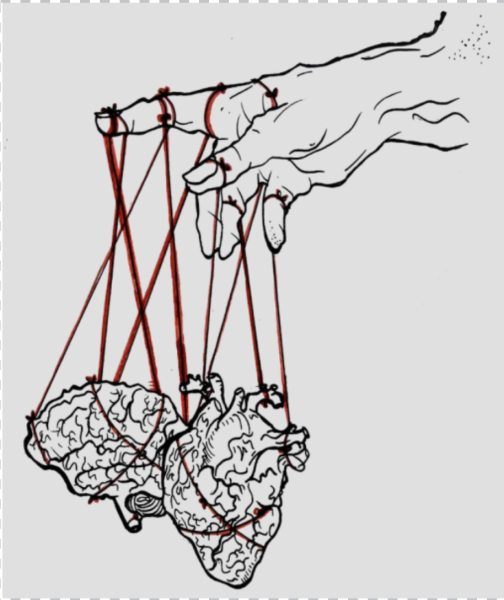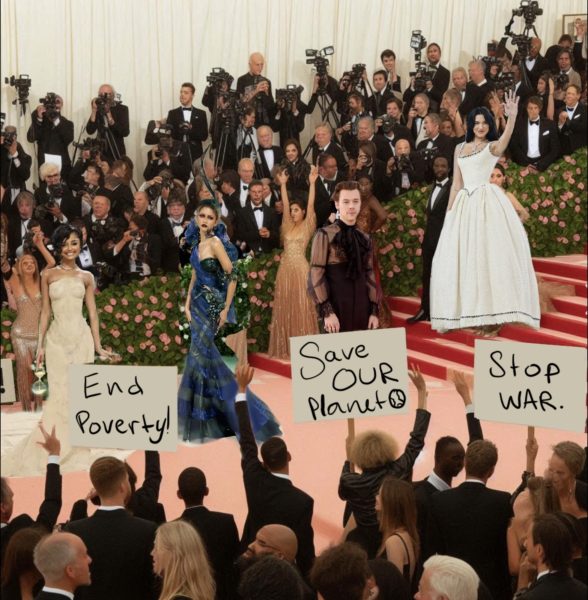That IS Racist
This article was written as part of the November 2019 issue – this was before calls from other students and staff members to implement sweeping changes concerning race education at ISL, showing that The High has always been at the forefront of social change at this institution. The author of this article had to go through many meetings with the leadership team before she could publish this. Have things changed for the better? Are these experiences still all too common?
“Can I have the N-word pass?”
“She isn’t black, why does she care?”
“They’re becoming more of a n***a every day.”
“It wasn’t like they said it directly to anyone, it doesn’t matter.”
“N****r.”
“It’s an all white school anyways, it doesn’t matter.”
I have been at this school for nine years and I have grown tired of the constant casual racism that anyone at this school who isn’t white faces.
In case anyone needed a quick reminder: “Racism- prejudice, discrimination, or antagonism directed against someone of a different race based on the belief that one’s own race is superior/the belief that all members of each race possess characteristics, abilities, or qualities specific to that race, especially so as to distinguish it as inferior or superior to another race or races.”
Now, this word is extremely strong. You may think I’m throwing it around too loosely. But feel free to compare the definition above to the claims I make and then come back and complain.
I’m so done with people asking me, “Can I have the N-word pass?” Every day, I hear at least five racist comments and jokes that are defended by “I’m kidding, it’s just a joke!” It’s quite frankly disgusting and unacceptable.
Let’s not forget the number of times I have actually heard people say the word and once they see me go, “oops, I forgot.” Oh, even better! “It’s a song, it’s fine, don’t be so dramatic.” One more. “I got the pass from him so it’s fine.”
I hate having to go home every day and wonder, would I be plagued by these comments if my skin color was just slightly different.
These things do not arise only around black students in the ISL community. Other minorities in the school have experienced similar incidents or even worse.
An Asian student in Year 13 gave some examples of their experiences:
“Why are you in maths studies if you’re Asian?”
“Are you gonna eat that dog?”
An Indian student:
“Do you smell like curry?”
An Egyptian student:
“I bet your dad is the leader of ISIS and that’s why he left.”
“Tell ISIS to stop.”
Some of these comments seem tame and look harmless whereas some of them are simply hard to read. And so many of these are told as jokes that aren’t intending to harm the person in question. But each and every one of these comments is built off of characteristics and qualities specific to a race.
Thus, each of these comments is racist (check the definition above again if you don’t believe me).
Over these nine years, I have noticed a trend of all of these things being said by white boys. I can barely name a time where any girl or anyone of color has said anything racist to me, at least directly.
And I am not here to point the finger at only the students at ISL. All talk about racism at this school is generally curriculum-based. It is mentioned in Humanities through the Apartheid and Civil Rights units, in English through reading Of Mice and Men. Racism has rarely (bordering on never) been a fixed discussion in homeroom and it is rarely discussed in assemblies. I get why; people don’t want to be lectured, there is a very low minority population in the staff, et cetera. But we’re here doing social and emotional learning, where they repeat the same things every single year when there are more important things to discuss?
There are ways to make this community more accepting and more tolerant. Firstly, through discussions. Discussions in homerooms, among friends, among teachers and among family.
Although it is hard, call people out. I myself have sat by and laughed as people make yet another joke about Africans or Indians or Chinese people or Black people. I am not completely innocent. It is so much easier to sit by and laugh than it is to call people out. But it is the right thing to do. As a quote from Elie Wiesel says, “The opposite of love is not hate, it’s indifference.” It is sitting around, hearing something awful and not saying anything when you know it’s wrong.
Also, it’s being mindful of the way one does call someone out. Calling someone “racist” is powerful and it is a word that gets thrown around far too often. It gives them a label, it makes them out to be a terrible person. There is a massive difference between telling someone “you’re racist” and “what you said was racist”, and it can make all the difference.
This article is not made to target any individuals. Even though many of them walk away with zero repercussions, that is not at all the point. My aim is to show the scale of racism at our school and it takes form as jokes, derogatory words, nicknames, posts on Instagram, memes on group chats and “harmless comments”.
The point of this article is to spark conversation.
Originally, I was doubtful to write this article, because of the backlash it will undoubtedly receive. But it is essential for someone to speak up and tell people that you don’t get to decide whether what you’re saying is offensive to others. I get to decide what I find offensive. It is incredibly important to respect other people’s boundaries and never question why those boundaries exist.
By the way, I can take a joke. Just not these ones anymore.



